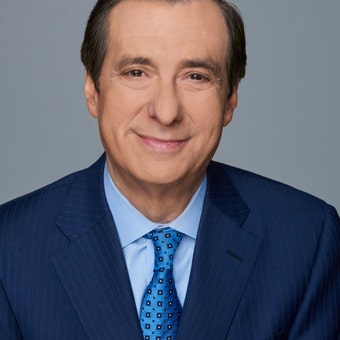Kurtz on coverage of Capitol Hill security, Biden administration's relationship with press
Fox News media analyst Howard Kurtz reacts to conflicting reports of a man's arrest on Capitol Hill and how the incoming Biden administration will treat the press.
One day before Joe Biden’s inauguration, with Washington resembling an armed camp, President Trump has no lawyer to defend him in an impeachment trial rooted in his aggressive attempts to reverse Biden’s victory.
The more than 20,000 National Guard troops protecting the Capitol after Trump supporters staged a violent insurrection there are a constant reminder that while the election is finally settled, democracy remains a fragile thing. And part of the Trump legacy is that a majority of Republicans continue to believe his unproven charges of a stolen election, which whether you believe he incited the riot or not, led to the Senate impeachment trial that will be a major distraction from the Biden administration’s launch.
With the lawyers who represented Trump in his first impeachment opting out of the sequel, Rudy Giuliani said he would be part of the new team, despite media reports that their relationship had fractured and the president was balking at paying his legal bills. But Giuliani told ABC’s Jonathan Karl on Sunday that he could not be part of the Senate proceedings because he was a witness--meaning he had urged the rally crowd that Trump addressed before the storming of the Capitol to engage in "trial by combat."
Perhaps that’s a face-saving stance after the former mayor met with the president over the weekend, for the New York Times reports that "Trump’s advisers blame him for the events surrounding both of the impeachments that the president has faced."
Obviously, Trump will find counsel for the Senate trial, and I remain skeptical that 17 Republicans will vote to convict a man who will already be out of office. And just as obviously, the new president will have to find a way to deal with the pandemic and the economy even if media attention remains riveted on his impeached predecessor.
But the mixed signals over Giuliani are emblematic of a tumultuous four years in which so many Trump aides and allies have been drawn close only to fall out of favor. And that’s never been more true than after the Jan. 6 riot, which led to three Cabinet resignations as well as criticism from the likes of Larry Kudlow, who told the Wall Street Journal he hoped Trump would "come out quickly and make statements calling everybody back and stopping the violence," and that his boss should have conceded the election.
TRUMP TURNS ON SOME LOYALISTS AS OTHERS REGRET HIS TUMULTUOUS EXIT
In a multi-part series with Woodward-like detail, Axios reports on the crumbling of some of these Trump relationships.
With Jonathan Swan as lead reporter, the website says Trump had a confrontation in his private dining room with Bill Barr on Dec. 1, the day the attorney general told the AP that he’d found no evidence of widespread election fraud.
The president’s theories were "bull--," Barr told him. And his new, Giuliani-led legal team was "clownish."
Trump had seen the wire story and was "fuming," telling Barr: "Why would you say such a thing? You must hate Trump. There’s no other reason for it. You must hate Trump." The AG insisted that other aides leave and told Trump they should have an amicable parting.
In another installment, Trump dumped on Sidney Powell, the lawyer who had joined his legal team and was spinning wild conspiracy theories about an international communist conspiracy to steal his votes. "Ugh, Sidney," he told his staff before picking up the phone. "She's getting a little crazy, isn't she? She's really gotta tone it down. No one believes this stuff. It's just too much."
During the call, he would hit the mute button and tell his assembled aides: "She really is crazy, huh?"
But Trump also promoted her to his team, telling one official: "Sometimes you need a little crazy."
Now stories like this, based on unnamed sources, can reflect their point of view, in this case, for example, painting Barr as a hero who stood up to the boss.
But when combined with reports in the Washington Post and elsewhere about Trump growing dissatisfied with such loyalists as Kayleigh McEnany and Mark Meadows, and even Hope Hicks leaving early, it cements the impression that the president gravitates toward those who tell him what he wants to hear.
SUBSCRIBE TO HOWIE'S MEDIA BUZZMETER PODCAST, A RIFF OF THE DAY'S HOTTEST STORIES
When Jeff Sessions, Jim Mattis and John Bolton were no longer in that category, they were gone--as Barr ultimately was, before Christmas Eve.
Whether Trump truly believes he was robbed in the election or was just scrambling to find a path to victory is ultimately beside the point. Biden is about to move into the White House, and the Senate trial will focus on whether Trump encouraged violence on that heartbreaking day when Congress was to certify his defeat.
But as long as many millions of supporters believe Biden’s election was illegitimate, Trump will remain a force, the Republicans will be deeply divided, and the country will have difficulty healing its wounds.










































